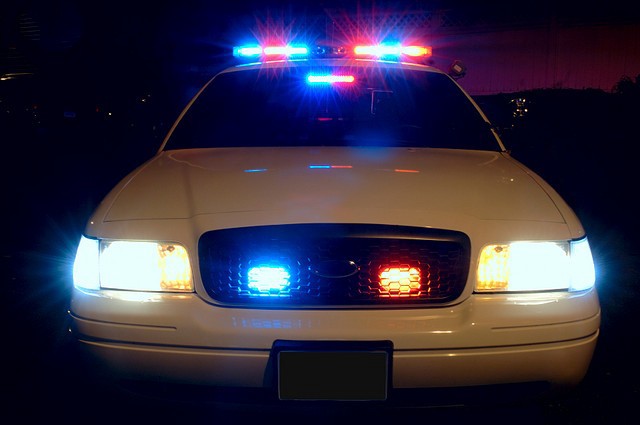When Law Enforcement Revenue Generation Gets Out of Control

One of our devoted Billfold readers sent me a link to a new Mother Jones article on police departments whose responsibilities include not only protecting the public and enforcing the law, but also seeking out lawbreakers as a method of revenue generation for the cities they protect: “police departments forced to assist city officials in raising revenue, in many cases funding their own salaries — redirecting the very concept of keeping the peace into underwriting the budget.”
We’ve heard about this before, and if you’re like me you probably heard it on The Daily Show’s March 2015 segment “System of a Town,” focusing on law enforcement as revenue generation in Ferguson, Missouri.
Here’s how Mother Jones explains it:
“Essentially, these small towns in urban areas have municipal infrastructure that can’t be supported by the tax base, and so they ticket everything in sight to keep the town functioning,” said William Maurer, a lawyer with the Institute for Justice who has been studying the sudden rise in “nontraffic-related fines.”
Take the St. Louis suburb of Pagedale, where, among other Norman Rockwell-worthy features deemed illegal, “you can’t have a hedge more than three feet high,” Maurer says. “You can’t have a basketball hoop or a wading pool in front of a house. You can’t have a dish antenna on the front of your house. You can’t walk on the roadway if there is a sidewalk, and if there is not a sidewalk, they must walk on the left side of the roadway. They must walk on the right of the crosswalk. They can’t conduct a barbecue in the front yard and can’t have an alcoholic beverage within 150 feet of a barbecue. Kids cannot play in the street. They also have restrictions against pants being worn below the waist in public. Cars must be within 500 feet of a lamp or a source of illumination during nighttime hours. Blinds must be neatly hung in respectable appearance, properly maintained, and in a state of good repair.”
Where did this Kafkaesque laundry list come from? Maurer explains that in 2010, Missouri passed a law that capped the amount of city revenue that any agency could generate from traffic stops. The intent was to limit small-town speed traps, but the unintentional consequences are now clear: Pagedale saw a 495 percent increase in nontraffic-related arrests. “In Frontenac, the increase was 364 percent,” Maurer says. “In Lakeshire, it was 209 percent.”
Pagedale, according to the 2010 Census, is 93.4 percent Black. This system of revenue generation, then, is directly connected to racial prejudice and racism — Mother Jones writes about judges who enforce fines on Black residents but erase them for white residents — as well as poverty. If you get arrested, you lose money and time. You might lose your job. You might go to jail for being unable to pay a $300 fine. And so on.
And then Mother Jones gets to the real point:
There is still no comprehensive study to determine just how many cities pay their bills by indenturing the poor, but it is probably no coincidence that when you examine the recent rash of police killings, you find that the offenses they were initially stopped for were preposterously minor. Bland’s lane change signal, DuBose’s missing plate.
I’ll just leave that there.
Photo credit: Scott Davidson
Support The Billfold
The Billfold continues to exist thanks to support from our readers. Help us continue to do our work by making a monthly pledge on Patreon or a one-time-only contribution through PayPal.
Comments